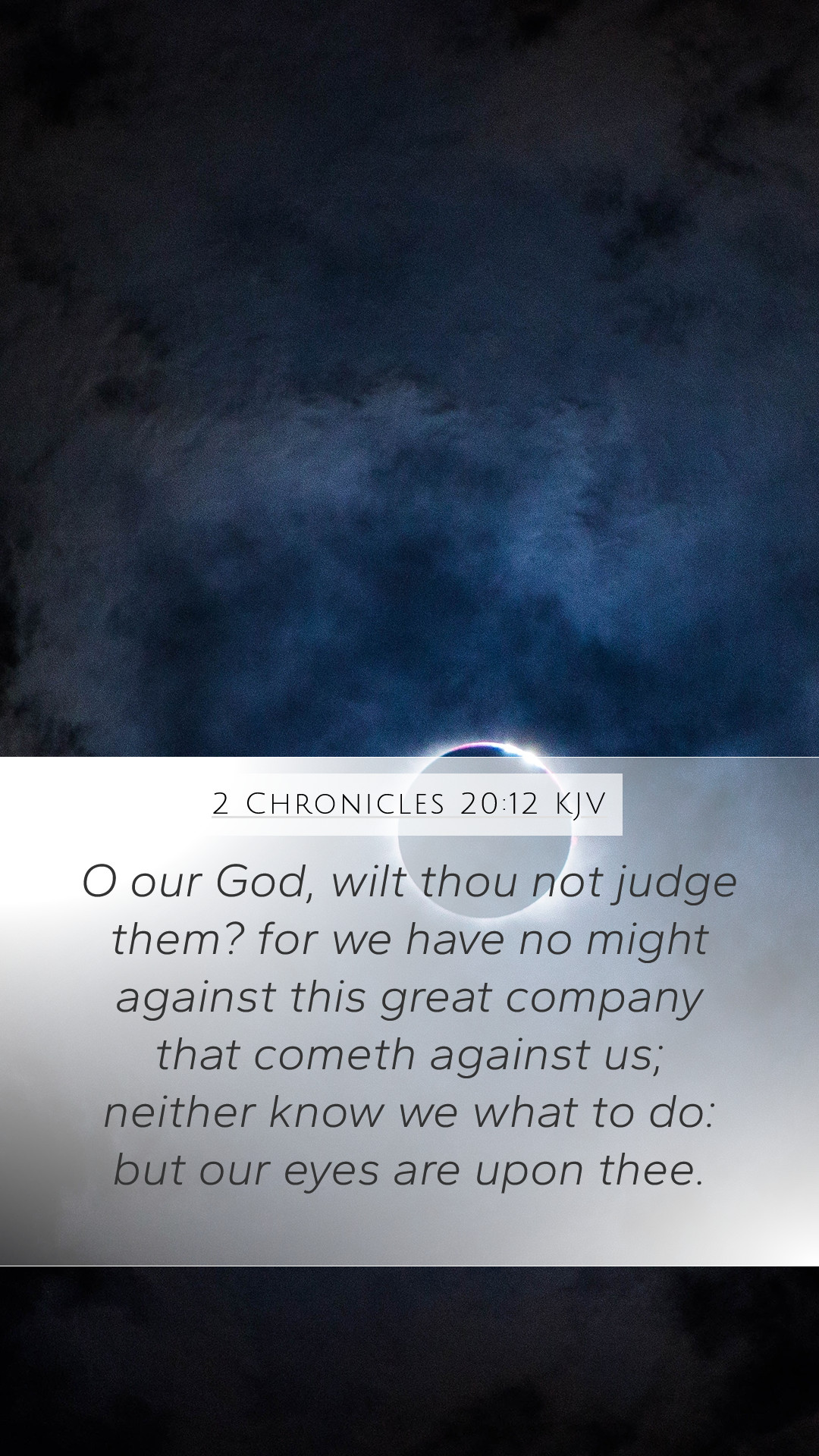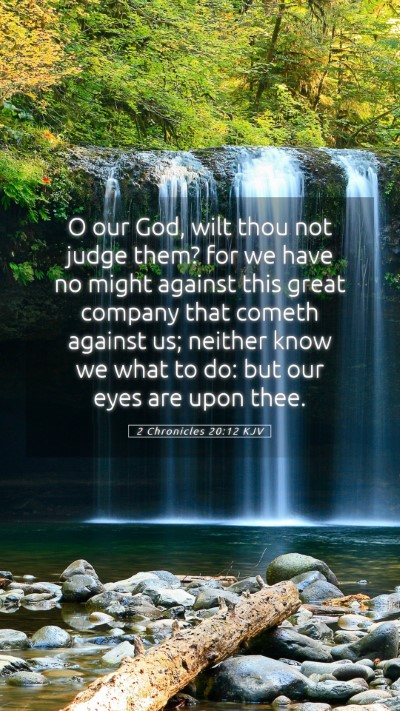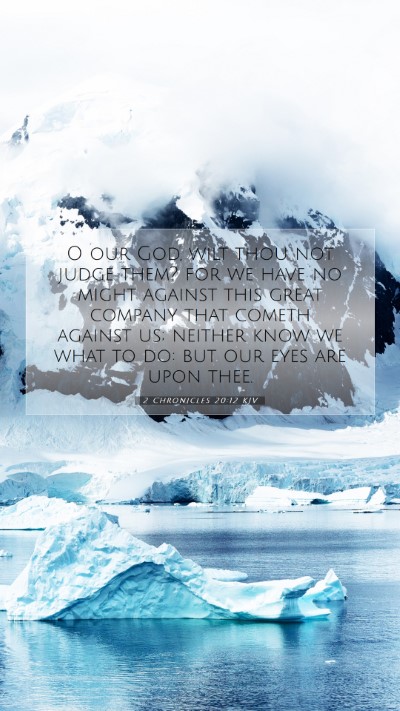Understanding 2 Chronicles 20:12: Bible Verse Meaning and Commentary
2 Chronicles 20:12 states: "O our God, will You not judge them? For we have no power against this great multitude that is coming against us; nor do we know what to do, but our eyes are upon You."
This verse encapsulates a moment of desperation and reliance on divine intervention by King Jehoshaphat of Judah. The historical context reveals that Jehoshaphat and the people of Judah found themselves overwhelmed by a vast enemy army, prompting the king to seek God's guidance and assistance.
Key Themes and Interpretations
- Desperation and Humility:
Jehoshaphat openly acknowledges his inability to face the enemy, illustrating a posture of humility before God. This resonates with the broader theme of relying on God's strength rather than our own.
- Looking to God:
The phrase "our eyes are upon You" indicates focused faith and trust in God's providence, reflecting a key aspect of biblical faith.
- Divine Justice:
Asking God to judge the enemies shows an understanding of God’s sovereignty and justice, seeking divine intervention rather than taking matters into their own hands.
- Community Prayer:
This moment was part of a collective prayer, emphasizing the importance of community in spiritual matters, which can enhance understanding scripture and foster unity among believers.
Biblical Exegesis and Commentary
- Matthew Henry:
Henry emphasizes the importance of recognizing one’s own limitations and the necessity of turning to God in times of crisis, suggesting that this confession of helplessness invites divine assistance.
- Adam Clarke:
Clarke notes that Jehoshaphat's prayer is a model for believers—seeking God earnestly, acknowledging reliance on Him, and presenting requests with sincere faith.
- Albert Barnes:
Barnes highlights the key lesson of faith amidst fear and uncertainty, pointing out that recognizing our inability encourages us to trust in God's omnipotent power.
Applications for Today
- Daily Life:
The call to focus on God’s ability rather than our problems is particularly applicable in modern life, where individuals often face overwhelming circumstances.
- Group Study:
This verse can foster discussion in bible study groups about reliance on prayer during times of trial and recognizing God’s sovereignty in our battles.
- Individual Reflection:
As we meditate on this verse, it encourages personal assessment of trust in God when facing challenges, illustrating how to interpret Bible verses in our daily situations.
Related Bible Cross References
- 2 Chronicles 32:8 - A reminder that God’s strength surpasses our adversaries.
- Psalm 121:1-2 - A statement of faith in God as our protector and help.
- Isaiah 41:10 - God's promise of support and encouragement amidst fear.
- Philippians 4:6-7 - Encouragement in prayer and trust in God’s peace.
- James 1:5 - Seeking wisdom from God when unsure of our path.
- Exodus 14:14 - The assurance that the Lord fights for His people.
- Romans 8:31 - Affirmation that if God is for us, no one can stand against us.
Conclusion
Reflecting on 2 Chronicles 20:12 provides profound lessons regarding reliance on God, community support in prayer, and the importance of recognizing our limitations. As individuals and as a community, integrating these insights fosters a deeper understanding of scripture and enhances our faith journey.


